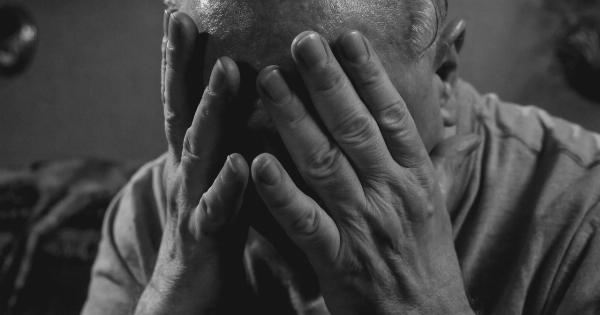Premature ejaculation is a common sexual problem experienced by many men. The condition, often referred to as PE, is characterized by an inability to control ejaculation during sexual intercourse.
This results in premature or quick ejaculation, leaving both partners unsatisfied. While premature ejaculation is a common problem, there is no clear definition of what is considered to be too short a time period. In this article, we will explore premature ejaculation and the varying opinions on how long is too short.
Causes of Premature Ejaculation
Premature ejaculation can be caused by both physical and psychological factors. Some physical factors that contribute to the condition include an over-sensitive penis, erectile dysfunction, or a hormonal imbalance.
Psychological factors such as anxiety, depression, and stress can also cause premature ejaculation. Additionally, relationship issues and sexual performance anxiety can contribute to the condition.
How Long Should Sex Last?
When it comes to sex, the length of time it should last is up for debate. Some people believe that sex should be a long, drawn-out experience, while others prioritize short and sweet.
In reality, there is no set time that is considered “ideal” for sex. It varies from person to person and from one sexual encounter to the next. However, research suggests that the average length of time for penetrative sex (from the start of penetration to ejaculation) is around six minutes.
What is Considered Premature Ejaculation?
Premature ejaculation is often defined as ejaculating within two minutes of penetration. However, some experts believe that it can be classified as ejaculating before both partners are satisfied.
Sex therapists often focus on the emotional satisfaction of sex rather than the physical duration of sex. This means that the definition of premature ejaculation can vary from what is physiologically determined to what the partners define as satisfying.
Treatment Options
There are various treatment options available for premature ejaculation. Some treatment options include sex therapy, counseling, and medications such as antidepressants and topical anesthetics.
These drugs help to desensitize the penis and delay ejaculation. Other treatment options include pelvic floor exercises, such as the Kegel exercise, and stop-start techniques.
When to Seek Help
If you are experiencing issues with premature ejaculation, it is important to speak to your healthcare provider. While it is a common problem, it can have a negative impact on both your mental health and your relationship.
Your doctor can help to determine the underlying causes of your premature ejaculation and advise on the best course of treatment.
Preventing Premature Ejaculation
While there is no guaranteed way to prevent premature ejaculation, there are steps you can take to reduce the risk of the condition.
Some of these steps include reducing stress and anxiety, communicating openly with your partner, and practicing techniques to help control your ejaculation, such as the squeeze technique. Maintaining a healthy lifestyle by eating a balanced diet and exercising regularly can also help to prevent premature ejaculation.
The Bottom Line
Premature ejaculation is a common problem that can have a negative impact on both sexual satisfaction and mental health.
While there is no set time that is considered ideal for sex, ejaculating before both partners are satisfied can be a sign of premature ejaculation. Treatment options are available, and speaking to your healthcare provider is the first step in addressing the problem.






























